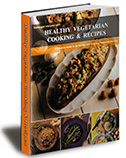Freezing
When food is to be stored for extended periods of time, extra care must be taken to prevent spoilage and retain as many nutrients as possible. In most cases, freezing is the best way to accomplish this. Freezing usually helps maintain good food color, texture, and flavor. Uncooked meats, fish, poultry, hard cheeses, milk, and bread, keep well in the freezer. Most fruit and vegetables – either cooked, blanched (plunged into boiling water for several minutes), or uncooked – freeze well.
Fresh lettuce, cabbage, carrots, cucumbers, radishes, celery, tomatoes, onions, potatoes, and bananas will not freeze well. Breads, cakes, and pastries made with egg whites may not hold up in the freezer. Other foods that should not be frozen include cream sauces, soft cheeses, meringue, and gelatin.
Freezers should be kept at 0 degrees F. Even at these cold temperatures, vitamin loss will be greater for some foods than for others. The vitamin C content of broccoli, spinach, cauliflower, and peaches, for example, may be reduced to half of its original level when frozen for several months. Peas and asparagus, however, can keep more than 90 percent of their vitamin C content for a year or longer in the freezer.
All food should be as fresh as possible when frozen. While freezing will halt growth of bacteria and mold, it will not destroy these microorganisms once they are present in food. (If spoiled food is placed into the freezer, spoiled food will come out of the freezer.)
For new ideas on cooking delicious and healthy food, visit lowsugar-recipes.com.
Tags: food storage, freezing
